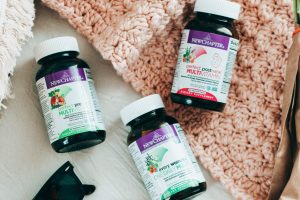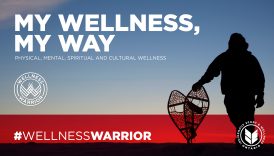Vitamin Mastery: Elevate Your Wellness Routine

Introduction to Vitamins
Importance of Vitamins in Wellness
Vitamins play a pivotal role in overall wellness, serving as essential nutrients that support various bodily functions. They help maintain a robust immune system, promote healthy skin, and regulate metabolism. Imagine vitamins as the small but mighty workers in your body, tirelessly ensuring that everything runs smoothly. For instance, on a busy day when energy levels dip, a boost from vitamin B12 can make all the difference, helping you stay alert and focused. To illustrate, consider these key benefits of vitamins:
- Vitamin Mastery: Elevate Your Wellness Routine
- Introduction to Vitamins
- Importance of Vitamins in Wellness
- Types of Vitamins Essential for the Body
- Understanding Vitamin Deficiencies
- Common Signs of Vitamin Deficiencies
- Impact of Insufficient Vitamin Intake
- Choosing the Right Vitamin Supplements
- Factors to Consider When Selecting Supplements
- Recommended Dosages for Different Vitamins
- Incorporating Vitamins in Your Diet
- Foods Rich in Essential Vitamins
- Best Cooking Practices to Retain Vitamin Content
- The Benefits of Vitamin C
- Role of Vitamin C in Immune Health
- Other Health Benefits of Vitamin C
- Vitamin D: The Sunshine Vitamin
- Importance of Vitamin D for Bone Health
- Sources of Vitamin D and Its Role in Wellness
- Vitamin Mastery for Skin Health
- Vitamins Essential for Healthy Skin
- Skincare Regimen to Enhance Vitamin Absorption
- Understanding Water-Soluble vs Fat-Soluble Vitamins
- Differences Between Water-Soluble and Fat-Soluble Vitamins
- Why Balance is Key in Consuming Both Types
- Customizing Your Vitamin Routine
- Consulting with a Healthcare Provider
- Personalizing Your Vitamin Intake for Optimal Wellness
- Overcoming Myths and Misconceptions About Vitamins
- Debunking Common Misconceptions
- Clarifying the Truth About Vitamin Supplementation
- Boost immune health
- Enhance energy levels
- Support bone health
- Aid in wound healing
These small wonders provide the foundation for a vibrant life, emphasizing the need for a balanced intake.
Types of Vitamins Essential for the Body
Vitamins can be classified into two categories: water-soluble and fat-soluble. Each type has its unique functions and sources:
- Water-Soluble Vitamins
- Vitamin C
- B Vitamins (B1, B2, B3, B6, B12, folate)
- Fat-Soluble Vitamins
- Vitamins A, D, E, K
By incorporating a variety of these vitamins from food or supplements, you can ensure your body receives the nourishment it needs for optimal function and wellness. Balancing these vitamins can be the key to unlocking a healthier you!
Understanding Vitamin Deficiencies
Common Signs of Vitamin Deficiencies
Recognizing the signs of vitamin deficiencies can be crucial for maintaining your health. Many may overlook these subtle cues until they escalate into more significant issues. For example, fatigue might just be blamed on a busy lifestyle, but it could be pointing to a lack of essential B vitamins. Here are some common signs to watch for:
- Fatigue and general weakness
- Frequent infections
- Dry skin or hair loss
- Poor wound healing
- Mood swings or increased irritability
If you’ve ever felt unusually tired or noticed changes in your skin, it might be time to assess your vitamin intake.
Impact of Insufficient Vitamin Intake
The impact of insufficient vitamin intake can be profound, leading to various health complications. Chronic deficiencies can result in:
- Immune system weakening, making you more susceptible to illnesses
- Bone disorders, like osteoporosis, from low calcium or vitamin D
- Neurological issues, often linked to B vitamin deficiencies
For instance, a lack of vitamin C can lead to scurvy, characterized by swollen gums and joint pain. Addressing these deficiencies early on can prevent a downward spiral into serious health problems, highlighting the importance of a balanced diet rich in nutrients. Remember, listening to your body is key to staying healthy!
Choosing the Right Vitamin Supplements
Factors to Consider When Selecting Supplements
Selecting the right vitamin supplements can feel overwhelming with the vast array of options available. However, focusing on a few key factors can simplify the process. For instance, consider your dietary habits. If you’re a vegetarian or vegan, you might need supplements for nutrients like vitamin B12 or iron that are typically found in animal products. Here are some factors to keep in mind:
- Individual health needs: Consult with a healthcare provider to understand any specific deficiencies.
- Quality of the product: Look for reputable brands that provide third-party testing.
- Form of the supplement: From capsules to gummies, choose a format that you find easy to consume.
Recommended Dosages for Different Vitamins
Once you’ve assessed your needs, knowing the recommended dosages is crucial. For example:
- Vitamin C: Typically, 75-90 mg per day for adults
- Vitamin D: 600-800 IU, but this can vary based on age and health
- B Vitamins: Ranges vary, with most around 1.2-2.4 mg per day based on the specific B vitamin
It’s always wise to start with the lower end of the dosage range and adjust as necessary. Remember, more isn’t always better; moderation is key to maximizing your health benefits!
Incorporating Vitamins in Your Diet
Foods Rich in Essential Vitamins
Incorporating vitamins into your diet can be enjoyable and delicious! The best approach is to focus on colorful, whole foods, as they often contain a variety of essential vitamins. For example, a vibrant salad with leafy greens, cherry tomatoes, and bell peppers not only tastes great but also packs a nutritional punch. Here are some foods to consider:
- Vitamin C: Oranges, strawberries, and bell peppers
- Vitamin A: Carrots, sweet potatoes, and spinach
- Vitamin D: Fatty fish like salmon, egg yolks, and fortified dairy
- B Vitamins: Whole grains, legumes, and nuts
Adding these foods to your meals can help ensure you’re getting the necessary nutrients.
Best Cooking Practices to Retain Vitamin Content
While the right foods are essential, how you cook them matters too. Some vitamins are sensitive to heat and can degrade during cooking. Here are some best practices to help retain vitamin content:
- Steam vegetables instead of boiling to avoid nutrient loss in water.
- Use minimal water when cooking; microwaving can also preserve vitamins.
- Avoid long cooking times, as this can diminish nutrient levels.
By focusing on both the right foods and cooking methods, you can enhance your vitamin intake and enjoy the health benefits they bring!
The Benefits of Vitamin C
Role of Vitamin C in Immune Health
Vitamin C is widely celebrated for its role in bolstering immune health, making it a household essential during cold and flu season. I remember my grandmother always urging us to load up on oranges whenever we felt a sniffle coming on. This is because vitamin C enhances the function of various immune cells and helps our bodies respond better to infections. Consider these key points about vitamin C’s immune-boosting properties:
- Stimulates the production of white blood cells that fight infections
- Acts as an antioxidant, protecting cells from damage
- Shortens the duration of colds when consumed regularly
By including vitamin C-rich foods in your diet, you can give your immune system a crucial boost.
Other Health Benefits of Vitamin C
Beyond immune support, vitamin C offers a plethora of other health benefits. It plays a vital role in collagen production, essential for healthy skin, joints, and tissues. A daily dose can also improve skin texture and elasticity. Additionally, vitamin C is known to help:
- Enhance iron absorption, preventing anemia
- Lower blood pressure in those with hypertension
- Reduce the risk of chronic diseases
Incorporating vitamin C into your daily routine can genuinely make a difference, showcasing its diverse and impactful health benefits!
Vitamin D: The Sunshine Vitamin
Importance of Vitamin D for Bone Health
Often referred to as the “sunshine vitamin,” vitamin D is crucial for maintaining strong and healthy bones. I remember my doctor explaining that vitamin D acts as a key facilitator for calcium absorption, which is essential for bone density. Without adequate vitamin D, bones can become brittle, leading to conditions like osteoporosis. Key points to consider about vitamin D’s role in bone health include:
- Enhances calcium absorption in the intestines
- Supports bone growth and remodeling
- Reduces the risk of fractures, especially in older adults
A balanced intake of vitamin D can significantly bolster your skeletal system, keeping you active and mobile throughout life.
Sources of Vitamin D and Its Role in Wellness
Vitamin D can be obtained from various sources, making it easier than ever to incorporate into your routine. The best source is sunlight; just 10-30 minutes of sun exposure a few times a week can give you a substantial amount. Additionally, consider these dietary sources:
- Fatty fish: Salmon, mackerel, and sardines
- Fortified foods: Milk, orange juice, and cereals
- Egg yolks and beef liver
Supplementation is another option, particularly in regions with limited sunlight. By ensuring you get enough vitamin D, you can promote overall wellness and enhance mood, further emphasizing its importance for a healthy lifestyle!
Vitamin Mastery for Skin Health
Vitamins Essential for Healthy Skin
Achieving glowing, healthy skin often starts with a well-rounded intake of vitamins. Just as I’ve noticed a difference in my complexion when I pay attention to my diet, incorporating specific vitamins can truly enhance skin health. Here are some essential vitamins to consider:
- Vitamin A: Promotes skin cell production and helps repair skin damage. Found in sweet potatoes and carrots.
- Vitamin C: Supports collagen production and protects against UV damage. Enjoy it in citrus fruits and strawberries.
- Vitamin E: Acts as an antioxidant, shielding skin from environmental stressors. Seek it in nuts and seeds.
By including these vitamins in your diet, you set the stage for better skin vitality.
Skincare Regimen to Enhance Vitamin Absorption
To fully reap the benefits of these vitamins, a thoughtful skincare regimen is key. I’ve learned that how we apply vitamins topically can make a difference. Here are some best practices to enhance vitamin absorption:
- Cleanse your skin before applying topical products to remove dirt and excess oil.
- Layer products from thinnest to thickest, applying lighter serums (like vitamin C) before heavier creams.
- Incorporate a moisturizer that contains vitamin E, to lock in hydration and enhance barrier function.
By merging a nutrient-rich diet with a strategic skincare routine, you can harness the full power of vitamins for radiant skin!
Understanding Water-Soluble vs Fat-Soluble Vitamins
Differences Between Water-Soluble and Fat-Soluble Vitamins
Understanding the distinction between water-soluble and fat-soluble vitamins can significantly impact how you manage your nutrition. Water-soluble vitamins, like the B-complex vitamins and vitamin C, dissolve in water and are not stored in the body. Instead, they’re excreted through urine, which means you need to replenish them regularly. On the other hand, fat-soluble vitamins (A, D, E, K) are stored in the body’s fatty tissues and liver, making it possible to go longer without them. To summarize:
- Water-Soluble Vitamins:
- Includes B-vitamins and vitamin C
- Easily absorbed and excreted
- Need regular intake
- Fat-Soluble Vitamins:
- Includes vitamins A, D, E, and K
- Stored in the body for future use
- May require fat for absorption
Why Balance is Key in Consuming Both Types
Balancing both types of vitamins is crucial for overall health. Relying solely on one type can lead to deficiencies or imbalances that may affect your well-being. For example, too little vitamin C can cause fatigue and immune issues, while excess vitamin A from supplements can be toxic. To maintain balance:
- Incorporate a variety of foods: Fruits, vegetables, whole grains, healthy fats, and proteins.
- Spread out your vitamin intake: Consume both water-soluble and fat-soluble sources throughout the week.
By embracing a balanced and diverse diet, you ensure that your body receives the full spectrum of essential nutrients for optimal health!
Customizing Your Vitamin Routine
Consulting with a Healthcare Provider
When it comes to vitamin intake, customizing your routine is essential for achieving optimal wellness. The first step should always be consulting with a healthcare provider, as they can assess your specific health needs and potential deficiencies. I recall visiting my doctor after feeling unusually fatigued; blood tests revealed a vitamin D deficiency I had overlooked. Here’s why consulting a healthcare provider is invaluable:
- Personalized testing: Identifying specific vitamin levels in your body.
- Guidance on dosage: Understanding safe and effective amounts tailored to your health.
- Addressing interactions: Ensuring vitamins won’t clash with medications you’re taking.
Personalizing Your Vitamin Intake for Optimal Wellness
Once you have professional guidance, it’s time to personalize your vitamin intake. Everyone’s needs differ based on factors like age, lifestyle, and diet. Reflecting on my own routine, I found that incorporating specific vitamins aligned with my energetic lifestyle worked wonders. Here are some tips for personalizing your intake:
- Keep a food diary: Track your dietary habits to identify gaps.
- Prioritize whole foods: Focus on getting your vitamins from natural sources first.
- Adjust as needed: Reevaluating your regimen every few months can help adapt to changes in your health and lifestyle.
By actively customizing your vitamin routine with expert guidance, you create a path toward improved wellness and health longevity!
Overcoming Myths and Misconceptions About Vitamins
Debunking Common Misconceptions
Navigating the world of vitamins can be tricky, especially with numerous myths and misconceptions floating around. One common myth I often hear is that taking megadoses of vitamins can lead to significant health improvements. Unfortunately, this can be more harmful than beneficial. For instance, high doses of vitamin A can be toxic, leading to serious health issues. Let’s debunk a few more misconceptions:
- Myth: All vitamins should come from supplements. Truth: Whole foods provide vitamins along with essential minerals and fiber.
- Myth: Natural vitamins are always better than synthetic ones. Truth: Many synthetic vitamins are chemically identical to their natural counterparts and can be just as effective.
Clarifying the Truth About Vitamin Supplementation
When it comes to vitamin supplementation, it’s essential to approach it with caution and understanding. While vitamins can fill nutritional gaps, they are not a substitute for a balanced diet. I’ve experienced firsthand how incorporating whole foods plays a significant role in my overall health. Here are some key takeaways about supplementation:
- Consult a healthcare provider before starting any new supplement regimen.
- Focus on the need: Supplements should address specific deficiencies rather than being taken indiscriminately.
- Quality matters: Choose reputable brands and check for third-party testing to ensure product quality.
By aligning knowledge with facts, overcoming myths about vitamins helps pave the way for better health decisions!





